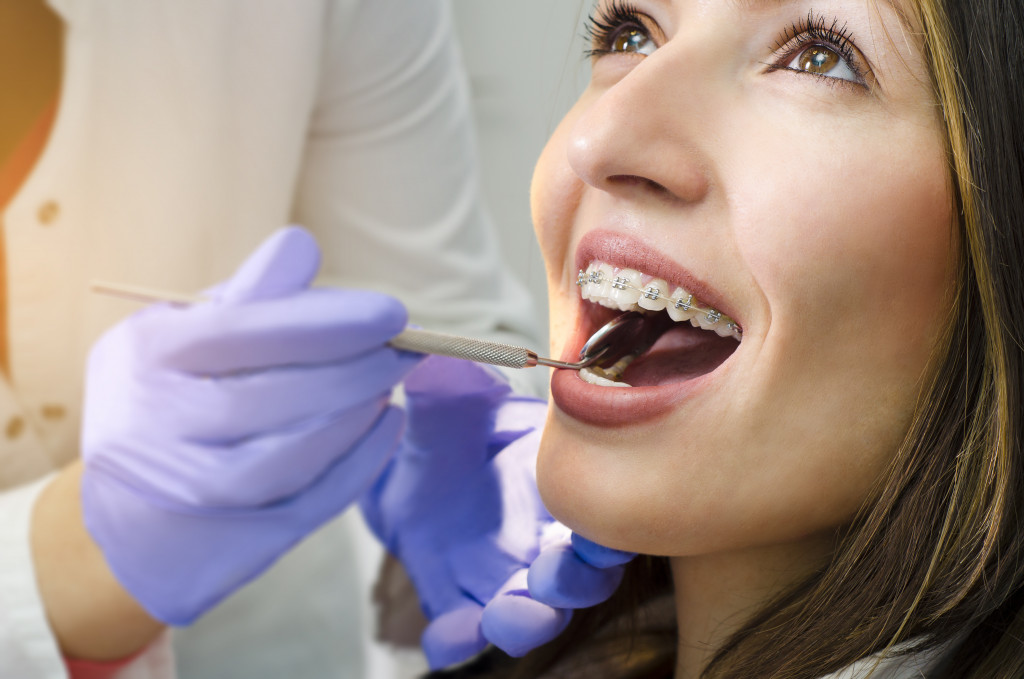We all know that brushing and flossing are essential for good oral hygiene, but problems can still occur sometimes. In this article, we will take a look at the ten most common oral health problems and offer some advice on how to prevent and treat them. But first, let’s take a look at what good oral hygiene entails.
What Good Oral Hygiene Looks Like
Good oral hygiene is more than just keeping your teeth clean. It also means taking care of your gums and tongue and being mindful of what you eat and drink. A good oral hygiene routine looks like this:
- Brushing your teeth at least twice a day with a fluoride toothpaste
- Flossing at least once a day
- Cleaning your tongue daily
- Eating a balanced diet and avoiding sugary snacks
- Drinking plenty of water
- Visiting your dentist regularly for checkups and cleanings
If you follow these steps, you should be able to avoid most oral health problems. But sometimes, despite our best efforts, problems can still occur. Let’s take a look at the ten most common oral health problems and what you can do about them.
Ten Common Oral Health Problems
1. Tooth Decay
Tooth decay is one of the most common oral health problems. It occurs when plaque builds up on your teeth and breaks down the enamel. This can cause cavities, which are holes in your teeth.
Treatment: If you have a cavity, your dentist will need to fill it. They will remove the decay and then fill the hole with a material such as an amalgam or composite.
2. Gum Disease
Gum disease is an infection of the gums that can cause them to become red, swollen, and bleed easily. If left untreated, it can lead to tooth loss.
Treatment: Gum disease can be treated with a deep cleaning, which involves scaling and root planing. This removes the plaque and tartar from your teeth and gums. You may also need to take antibiotics to clear the infection.
3. Bad Breath
Bad breath, also known as halitosis, is a common problem. It can be caused by food, tobacco use, poor oral hygiene, and certain medical conditions.
Treatment: The best way to treat bad breath is to brush and floss regularly and visit your dentist for checkups. Your dentist can also recommend other treatments such as mouthwashes or tongue scrapers.
4. Dry Mouth
Dry mouth, also known as xerostomia, is a condition where you don’t have enough saliva. This can be caused by medications, medical conditions, and certain habits such as smoking.
Treatment: There are several ways to treat dry mouth. You can use a saliva substitute, chew sugar-free gum, or take medications to increase saliva production.
5. Cracked Teeth
Cracked teeth can be caused by things like trauma, chewing on hard objects, and teeth grinding. They can cause pain and sensitivity.
Treatment: The best way to treat a cracked tooth is to see your dentist. Clinics like Dental House can provide root canal treatment and other treatments to save the tooth.
6. Tooth Sensitivity
Tooth sensitivity is a common problem that can be caused by things like gum disease, tooth decay, and cracked teeth. It can also be caused by bleaching your teeth or using whitening products.
Treatment: There are several ways to treat tooth sensitivity. You can use a desensitizing toothpaste, get a fluoride treatment, or have a root canal.
7. Mouth Sores
Mouth sores are common and can be caused by things like injuries, viral infections, and certain medications. They can be painful and make it difficult to eat or drink.
Treatment: Treatment for mouth sores depends on the cause. For example, if a virus causes them, they will usually go away on their own. If they’re caused by an injury, you may need to see your dentist.
8. Oral Cancer
Oral cancer is a type of cancer that can develop in the mouth, throat, or tongue. It is often caused by things like tobacco use, excessive alcohol consumption, and HPV infections.
Treatment: Treatment for oral cancer depends on the stage of cancer. Surgery, radiation therapy, and chemotherapy are often used.
9. TMJ Disorders
TMJ disorders are a group of conditions that affect the temporomandibular joint, which is the joint that connects your jaw to your skull. They can be caused by things like teeth grinding, arthritis, and injury.
Treatment: Treatment for TMJ disorders depends on the cause. Often, a splint or mouth guard is worn to protect the joint. Physical therapy and medications can also be used.
10. Impacted Wisdom Teeth
Wisdom teeth are the backmost molars that usually come in during your late teens or early twenties. Sometimes, they can become impacted, which means they get stuck in the gums or jawbone. This can cause pain, swelling, and infection.
Treatment: Treatment for impacted wisdom teeth depends on the severity of the impaction. Often, they need to be removed surgically.
Oral health is important for overall health, and it’s crucial to take care of your teeth and gums. The ten oral health problems we’ve outlined are some of the most common, but there are many others that can occur. If you have any concerns, be sure to talk to your dentist. They can help you identify the problem and find the best treatment.


